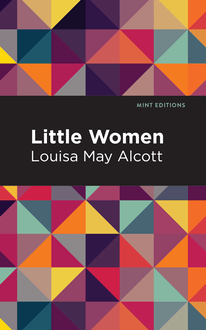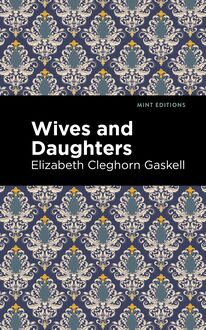-
 Univers
Univers
-
 Ebooks
Ebooks
-
 Livres audio
Livres audio
-
 Presse
Presse
-
 Podcasts
Podcasts
-
 BD
BD
-
 Documents
Documents
-
- Cours
- Révisions
- Ressources pédagogiques
- Sciences de l’éducation
- Manuels scolaires
- Langues
- Travaux de classe
- Annales de BEP
- Etudes supérieures
- Maternelle et primaire
- Fiches de lecture
- Orientation scolaire
- Méthodologie
- Corrigés de devoir
- Annales d’examens et concours
- Annales du bac
- Annales du brevet
- Rapports de stage
La lecture à portée de main
Vous pourrez modifier la taille du texte de cet ouvrage
Découvre YouScribe en t'inscrivant gratuitement
Je m'inscrisDécouvre YouScribe en t'inscrivant gratuitement
Je m'inscrisEn savoir plus
Vous pourrez modifier la taille du texte de cet ouvrage
En savoir plus

Description
Camilla; Or, A Picture of Youth (1796) is a novel by Frances Burney. Both satirical and serious, comedic and Gothic, Burney’s novel helped establish her reputation as one of the most popular writers of eighteenth-century England. Referred to in Jane Austen’s Northanger Abbey (1803) and Maria Edgeworth’s Belinda (1801), Camilla; Or, A Picture of Youth was a popular and critically acclaimed novel that served as inspiration for some of the leading literary figures of the early nineteenth century. After years of silence, Mr. Augustus Tyrold moves to the rural estate of Cleves to be near his brother Sir Hugh, who lives at a local parsonage. Lonely and crippled, Sir Hugh hopes to act as a mentor to his nieces and nephews. He takes a liking to Camilla, the middle daughter, and endeavors to make her his heiress while raising her in his own household. Although initially cautious, Mr. and Mrs. Tyrold eventually send Camilla to live at Sir Hugh’s home, where her uncle decides to host her tenth birthday party. When a lapse in judgement leads to Camilla’s younger sister contracting smallpox, Sir Hugh attempts to remedy the situation by naming Eugenia his heiress instead. Living with her uncle, Eugenia enjoys an unusually thorough education under the tutelage of Dr. Orkbourne, a classical scholar who quickly takes to the enthusiastic and intelligent young girl. Meanwhile, Camilla becomes entangled in a love triangle involving her father’s ward Edgar and her cousin Indiana. Despite the mutual affection between Edgar and Camilla, Indiana has entertained the thought of marrying the handsome, wealthy man from a young age, when Sir Hugh thought it prudent to predict their future marriage. As Sir Hugh’s plans for the Tyrold youths meet increasingly serious obstacles, and as debts threaten the wellbeing of the entire family, Camilla is forced to navigate a world in which decisions seem always to be made in her interest by those with their own in mind. With a beautifully designed cover and professionally typeset manuscript, this edition of Frances Burney’s Camilla; Or, A Picture of Youth is a classic of English literature reimagined for modern readers.
Sujets
Informations
| Publié par | Mint Editions |
| Date de parution | 21 mai 2021 |
| Nombre de lectures | 0 |
| EAN13 | 9781513285030 |
| Langue | English |
| Poids de l'ouvrage | 3 Mo |
Informations légales : prix de location à la page 0,1000€. Cette information est donnée uniquement à titre indicatif conformément à la législation en vigueur.
Extrait
Camilla; Or, A Picture of Youth
Frances Burney
Camilla; Or, A Picture of Youth was first published in 1802.
This edition published by Mint Editions 2021.
ISBN 9781513280011 | E-ISBN 9781513285030
Published by Mint Editions®
minteditionbooks.com
Publishing Director: Jennifer Newens
Design & Production: Rachel Lopez Metzger
Project Manager: Micaela Clark
Typesetting: Westchester Publishing Services
T O T HE Q UEEN
M ADAM ,
That Goodness inspires a confidence, which, by divesting respect of terror, excites attachment to Greatness, the presentation of this little Work to Your Majesty must truly, however humbly, evince; and though a public manifestation of duty and regard from an obscure Individual may betray a proud ambition, it is, I trust, but a venial—I am sure it is a natural one.
* * * * *
In those to whom Your Majesty is known but by exaltation of Rank, it may raise, perhaps, some surprise, that scenes, characters, and incidents, which have reference only to common life, should be brought into so august a presence; but the inhabitant of a retired cottage, who there receives the benign permission which at Your Majesty’s feet casts this humble offering, bears in mind recollections which must live there while “memory holds its seat,” of a benevolence withheld from no condition, and delighting in all ways to speed the progress of Morality, through whatever channel it could flow, to whatever port it might steer. I blush at the inference I seem here to leave open of annexing undue importance to a production of apparently so light a kind—yet if my hope, my view—however fallacious they may eventually prove, extended not beyond whiling away an idle hour, should I dare seek such patronage?
With the deepest gratitude, and most heart-felt respect, I am,
M ADAM ,
Your M AJESTY’S
Most obedient, most obliged,
And most dutiful servant,
F. d’ A RBLAY
B OOKHAM ,
June 28, 1796
C ONTENTS A DVERTISEMENT V OLUME I B OOK I I. A F AMILY S CENE II. C OMIC G AMBOLS III. C ONSEQUENCES IV. S TUDIES OF A G ROWN G ENTLEMAN V. S CHOOLING OF A Y OUNG G ENTLEMAN VI. T UITION OF A Y OUNG L ADY VII. L OST L ABOUR B OOK II I. N EW P ROJECTS II. N EW C HARACTERS III. A F AMILY B REAKFAST IV. A P UBLIC B REAKFAST V. A R AFFLE VI. A B ARN VII. A D ECLARATION VIII. A N A NSWER IX. A N E XPLICATION X. A P ANIC XI. T WO L OVERS XII. T WO D OCTORS XIII. T WO W AYS OF L OOKING AT THE S AME T HING XIV. T WO R ETREATS XV. T WO S IDES OF A Q UESTION V OLUME II B OOK III I. A FEW K IND O FFICES II. A P RO AND A C ON III. A N A UTHOR ’ S N OTION OF T RAVELLING IV. A N I NTERNAL D ETECTION V. A N A UTHOR ’ S O PINION OF V ISITING VI. A N A UTHOR ’ S I DEA OF O RDER VII. A M ATERNAL E YE VIII. M ODERN I DEAS OF D UTY IX. A F EW E MBARRASSMENTS X. M ODERN I DEAS OF L IFE XI. M ODERN N OTIONS OF P ENITENCE XII. A IRS AND G RACES XIII. A TTIC A DVENTURES B OOK IV I. A FEW E XPLANATIONS II. S PECIMENS OF T ASTE III. A FEW C OMPLIMENTS IV. T HE D ANGER OF D ISGUISE V. S TRICTURES ON D EFORMITY VI. S TRICTURES ON B EAUTY VII. T HE P LEADINGS OF P ITY VIII. T HE D ISASTROUS B USKINS IX. T HREE G OLDEN M AXIMS V OLUME III B OOK V I. A P URSUER II. A N A DVISER III. V ARIOUS C ONFABULATIONS IV. A D ODGING V. A S ERMON VI. A C HAT VII. A R ECALL VIII. A Y OUTH OF THE T IMES B OOK VI I. A W ALK BY M OONLIGHT II. T HE P ANTILES III. M OUNT E PHRAIM IV. K NOWLE V. M OUNT P LEASANT VI. T HE A CCOMPLISHED M ONKIES VII. T HE R OOMS VIII. W AYS TO THE H EART IX. C OUNSELS FOR C ONQUEST X. S TRICTURES UPON THE T ON XI. T RAITS OF C HARACTER XII. T RAITS OF E CCENTRICITY XIII. T RAITS OF I NSTRUCTION XIV. A D EMANDER XV. A N A CCORDER XVI. A N H ELPER V OLUME IV B OOK VII I. T HE R IGHT S TYLE OF A RGUING II. A C OUNCIL III. A P ROPOSAL OF M ARRIAGE IV. A B ULL -D OG V. A N O AK T REE VI. A C ALL OF THE H OUSE VII. T HE T RIUMPH OF P RIDE VIII. A S UMMONS TO H APPINESS IX. O FFS AND O NS X. R ESOLUTIONS XI. E ASE AND F REEDOM XII. D ILEMMAS XIII. L IVE AND L EARN B OOK VIII I. A W AY TO MAKE F RIENDS II. A R AGE OF O BLIGING III. A P LEASANT A DVENTURE IV. A N A UTHOR ’ S T IME - KEEPER V. A N A GREEABLE H EARING VI. I DEAS UPON M ARRIAGE VII. H OW TO T REAT A D EFAMER VIII. T HE P OWER OF P REPOSSESSION IX. A S CUFFLE X. A Y OUTHFUL E FFUSION XI. T HE C OMPUTATIONS OF S ELF -L OVE XII. J UVENILE C ALCULATIONS V OLUME V B OOK IX I. A W ATER P ARTY II. T OUCHES OF W IT AND H UMOUR III. A N A DIEU IV. A MODEST R EQUEST V. A S ELF - DISSECTION VI. A R ECKONING VII. B RIDES AND NO B RIDES VIII. A H INT FOR D EBTORS IX. A L OVER ’ S E YE X. A B RIDE ’ S R ESOLVES XI. T HE W ORKINGS OF S ORROW B OOK X I. A S URPRISE II. A N ARRATIVE III. T HE P ROGRESS OF D ISSIPATION IV. H INTS UPON N ATIONAL P REJUDICE V. T HE O PERATION OF T ERROR VI. T HE R EVERSE OF A M ASK VII. A N EW V IEW OF AN O LD M ANSION VIII. A L AST R ESOURCE IX. A S PECTACLE X. A V ISION XI. M EANS TO STILL A GITATION XII. M EANS TO OBTAIN A B OON XIII. Q UESTIONS AND A NSWERS XIV. T HE L AST T OUCHES OF THE P ICTURE
A DVERTISEMENT
T he Author of this little Work cannot, in the anxious moment of committing it to its fate, refuse herself the indulgence of expressing some portion of the gratitude with which she is filled, by the highly favourable reception given to her T WO former attempts in this species of composition; nor forbear pouring forth her thanks to the many Friends whose kind zeal has forwarded the present undertaking:—from amongst whom she knows not how to resist selecting and gratifying herself by naming the Hon. Mrs. B OSCAWEN , Mrs. C REWE , and Mrs. L OCKE .
VOLUME I
BOOK I
T he historian of human life finds less of difficulty and of intricacy to develop, in its accidents and adventures, than the investigator of the human heart in its feelings and its changes. In vain may Fortune wave her many-coloured banner, alternately regaling and dismaying, with hues that seem glowing with all the creation’s felicities, or with tints that appear stained with ingredients of unmixt horrors; her most rapid vicissitudes, her most unassimilating eccentricities, are mocked, laughed at, and distanced by the wilder wonders of the Heart of man; that amazing assemblage of all possible contrarieties, in which one thing alone is steady—the perverseness of spirit which grafts desire on what is denied. Its qualities are indefinable, its resources unfathomable, its weaknesses indefensible. In our neighbours we cannot judge, in ourselves we dare not trust it. We lose ere we learn to appreciate, and ere we can comprehend it we must be born again. Its capacity o’er-leaps all limit, while its futility includes every absurdity. It lives its own surprise—it ceases to beat—and the void is inscrutable! In one grand and general view, who can display such a portrait? Fairly, however faintly, to delineate some of its features, is the sole and discriminate province of the pen which would trace nature, yet blot out personality.
I
A F AMILY S CENE
R epose is not more welcome to the worn and to the aged, to the sick and to the unhappy, than danger, difficulty, and toil to the young and adventurous. Danger they encounter but as the forerunner of success; difficulty, as the spur of ingenuity; and toil, as the herald of honour. The experience which teaches the lesson of truth, and the blessings of tranquillity, comes not in the shape of warning nor of wisdom; from such they turn aside, defying or disbelieving. ’Tis in the bitterness of personal proof alone, in suffering and in feeling, in erring and in repenting, that experience comes home with conviction, or impresses to any use.
In the bosom of her respectable family resided Camilla. Nature, with a bounty the most profuse, had been lavish to her of attractions; Fortune, with a moderation yet kinder, had placed her between luxury and indigence. Her abode was in the parsonage-house of Etherington, beautifully situated in the unequal county of Hampshire, and in the vicinity of the varied landscapes of the New Forest. Her father, the rector, was the younger son of the house of Tyrold. The living, though not considerable, enabled its incumbent to attain every rational object of his modest and circumscribed wishes; to bestow upon a deserving wife whatever her own forbearance declined not; and to educate a lovely race of one son and three daughters, with that expansive propriety, which unites improvement for the future with present enjoyment.
In goodness of heart, and in principles of piety, this exemplary couple was bound to each other by the most perfect unison of character, though in their tempers there was a contrast which had scarce the gradation of a single shade to smooth off its abrupt dissimilitude. Mr. Tyrold, gentle with wisdom, and benign in virtue, saw with compassion all imperfections but his own, and there doubled the severity which to others he spared. Yet the mildness that urged him to pity blinded him not to approve; his equity was unerring, though his judgment was indulgent. His partner had a firmness of mind which nothing could shake: calamity found her resolute; even prosperity was powerless to lull her duties asleep. The exalted character of her husband was the pride of her existence, and the source of her happiness. He was not merely her standard of excellence, but of endurance, since her sense of his worth was the criterion for her opinion of all others. This instigated a spirit of comparison, which is almost always uncandid, and which here could rarely escape proving injurious. Such, at its very best, is the unskilfulness of our fallible nature, that even the noble principle which impels our love of right, misleads us but into new deviations, when its ambition presumes to point at perfection. In this instance, however, distinctness of disposition stifled not reciprocity of affection—that magnetic concentration of all marriage felicity;—Mr. Tyrold revered while he softened the rigid virtues of his wife, who adored while
-
 Univers
Univers
-
 Ebooks
Ebooks
-
 Livres audio
Livres audio
-
 Presse
Presse
-
 Podcasts
Podcasts
-
 BD
BD
-
 Documents
Documents
-
Jeunesse
-
Littérature
-
Ressources professionnelles
-
Santé et bien-être
-
Savoirs
-
Education
-
Loisirs et hobbies
-
Art, musique et cinéma
-
Actualité et débat de société
-
Jeunesse
-
Littérature
-
Ressources professionnelles
-
Santé et bien-être
-
Savoirs
-
Education
-
Loisirs et hobbies
-
Art, musique et cinéma
-
Actualité et débat de société
-
Actualités
-
Lifestyle
-
Presse jeunesse
-
Presse professionnelle
-
Pratique
-
Presse sportive
-
Presse internationale
-
Culture & Médias
-
Action et Aventures
-
Science-fiction et Fantasy
-
Société
-
Jeunesse
-
Littérature
-
Ressources professionnelles
-
Santé et bien-être
-
Savoirs
-
Education
-
Loisirs et hobbies
-
Art, musique et cinéma
-
Actualité et débat de société
- Cours
- Révisions
- Ressources pédagogiques
- Sciences de l’éducation
- Manuels scolaires
- Langues
- Travaux de classe
- Annales de BEP
- Etudes supérieures
- Maternelle et primaire
- Fiches de lecture
- Orientation scolaire
- Méthodologie
- Corrigés de devoir
- Annales d’examens et concours
- Annales du bac
- Annales du brevet
- Rapports de stage















